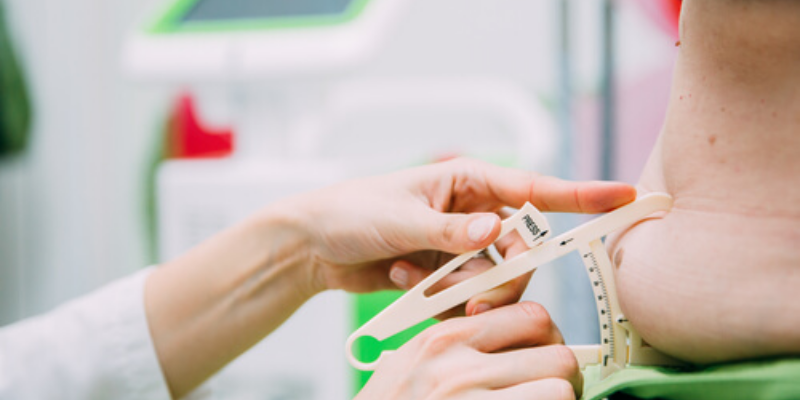Weight Loss Surgery Scars
Although weight reduction surgery can help you drop a significant amount of weight and improve your physical appearance, it is not without risks. Fortunately, there are techniques to lessen the appearance of weight loss surgery scars. For those of you who are concerned about the scars left after weight reduction surgery, this post is for you to provide you with in-depth information on how to reduce the scarring. There is no escaping the scars you’ll get after weight loss surgery. Weight loss surgery scars can be reduced if the procedure is performed by an experienced surgeon.
You can minimize scarring following bariatric surgery if you follow the recommendations given to you. Scar creams don’t prevent scarring, but they do aid to keep the area hydrated while it heals. Scarring from weight reduction surgery can be minimized by using sunscreen and avoiding exposure to the sun. It’s possible to reduce weight without leaving visible scars thanks to a new procedure called scarless weight loss surgery.
Do Weight Loss Surgery Scars Heal?
There is no way to avoid the scarring that comes with many weight-loss operations such as gastric sleeve surgery, gastric bypass surgery, gastric balloon surgery, and others when dieting and exercising haven’t worked. Although scars are inevitable, there are strategies to reduce them as much as possible, regardless of whether you go for laparoscopic or open surgery.
When it comes to minimizing scarring following surgery, both the patient and the physician have a role to play. In terms of scarring, minimally invasive surgery is superior to open surgery. Open weight reduction surgery and endoscopic weight loss surgery are also options. As a result of larger incisions, open surgery results in increased scarring. Ask your doctor whether he or she can do a minimally invasive procedure instead of an open procedure.
More and more people are choosing laparoscopic surgery with a single incision these days. Instead of the five tiny incisions used in regular endoscopic surgery or the typical huge incision used in open surgery, this novel method uses only one small incision. Because the surgeon does all of the work through the belly button, the patient will have a very small or no scar at all depending on the circumstances. Laparoscopic surgery is required for this form of scarless weight reduction surgery to be successful.
How To Minimize Weight Loss Scars?
“Why do I have incision scars following bariatric surgery or any other surgical procedure?” You should be aware that scarring is a natural component of the healing process. When new skin cells begin to proliferate and strengthen the new tissues, the scar begins to form. The characteristics of the scar are heavily influenced by the shape and size of the wound, therefore the scar may be flat or raised, red or white, depending on the procedure used to perform the operation. In addition, the scar becomes less noticeable with time. In certain circumstances, scars may continue to fade for up to two years.
You may greatly reduce scarring by knowing the healing process and avoiding the elements that encourage scarring. If you want to prevent scarring following weight reduction surgery, the following steps are necessary: Picking at the incisions will cause additional scarring since the body will have to re-heal them more.
Do not smoke in the days preceding and immediately following surgery. Smoking causes blood vessels to tighten, resulting in less nutrition being delivered to the cells and hence a longer recovery time. Stay out of the direct sunlight. You can’t stay out of the sun all the time, but you can minimize your exposure by wearing a hat and sunscreen when you must go out.
While scarring is inevitable, there are ways to minimize it, such as: Gently massaging the area around the wound. This can help minimize scarring since it breaks down scar tissue beneath the skin. Making use of topical scar treatments is an option. Although these lotions aren’t miraculous, they can help keep scar tissues moist. Observing the wound. You need to keep an eye on the wound to check if it has infected at all times.
Do Weight Loss Scar Creams Really Work?
Scar creams (or gels and sheets) bearing the names of popular brands claim to lessen the visibility of scars over time. Some include silicone, which can help moisturize the skin and decrease the formation of excess collagen. Allantoin, a byproduct of uric acid that softens the keratin protein in the skin, is another. Vitamin E oil also helps soften and moisturize the skin. It is comparable to onion extract, which draws moisture into the skin and lecithin, a barrier that helps keep moisture on the skin, although panthenol is more potent.
Scar creams have received little scientific investigation due to the fact that each person’s wounds heal differently, thus excellent studies must compare scars on the same person that is comparable. Comparisons between the promised advantages and the clinical evidence of over-the-counter products found that there was little correlation.
What Should You Ask Your Surgeon About Weight Loss Scars?
Ask about scars during your consultation with your surgeon about whether bariatric surgery is best for you. Endoscopic sleeve gastroplasty and gastric balloon surgery both perform while you’re asleep, therefore there are no visible scars from either technique.
Laparoscopic techniques include a gastric sleeve, lap-band, gastric bypass, all of which use tools introduced through small incisions in your belly to accomplish their goals. It’s the only procedure that requires an incision between the hip bones and at the level of the pubic hair that requires a stomach tuck.
You may want to ask these several questions of your surgeon. When it comes to scarring, what should I prepare for? Does anybody know of a way I can reduce any scars? Your surgeon should know whether you have keloid scar tissue in your past. Despite the fact that they are a typical part of the healing process, scars may be able to disguise with a few simple steps. Follow your surgeon’s instructions on how to care for your incision and be sure to show up for any planned follow-up appointments.
How Can I Find the Best Weight Loss Surgery for Me?
One of the best ways to determine which is the best weight loss surgery for you is to speak with your doctor. They will be able to explain the different options and discuss the benefits, risks and potential complications associated with each. Additionally, they can provide guidance on what lifestyle changes may be beneficial and how to ensure that the surgery is successful. With a comprehensive understanding of each type of surgery, you can decide what will work best for you and your individual needs. 
It is crucial to keep in mind that there are no guarantees when it comes to any weight loss surgery. Your results may vary depending on your pre-existing medical conditions and other factors such as diet and exercise. While some people succeed with one type of procedure, others succeed with another. Remember that there isn’t a one size fits all approach when it comes to determining which is the best weight loss surgery among all the different types of weight loss surgeries. Ultimately, the decision should be made after careful consideration combined with advice from professionals.





